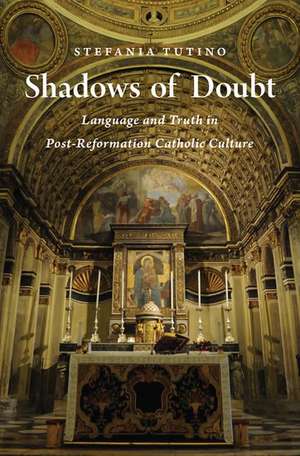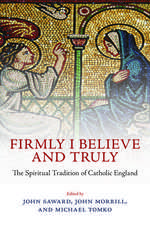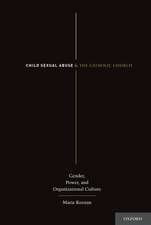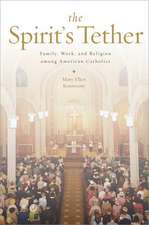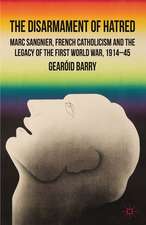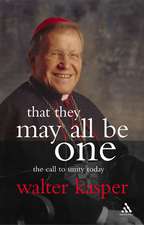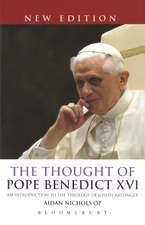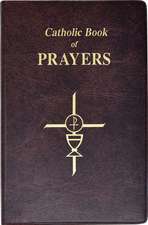Shadows of Doubt: Language and Truth in Post-Reformation Catholic Culture
Autor Stefania Tutinoen Limba Engleză Hardback – 30 ian 2014
Preț: 580.41 lei
Preț vechi: 833.36 lei
-30% Nou
Puncte Express: 871
Preț estimativ în valută:
111.08€ • 115.38$ • 92.27£
111.08€ • 115.38$ • 92.27£
Carte tipărită la comandă
Livrare economică 22-28 ianuarie 25
Preluare comenzi: 021 569.72.76
Specificații
ISBN-13: 9780199324989
ISBN-10: 0199324980
Pagini: 304
Dimensiuni: 160 x 236 x 28 mm
Greutate: 0.54 kg
Editura: Oxford University Press
Colecția OUP USA
Locul publicării:New York, United States
ISBN-10: 0199324980
Pagini: 304
Dimensiuni: 160 x 236 x 28 mm
Greutate: 0.54 kg
Editura: Oxford University Press
Colecția OUP USA
Locul publicării:New York, United States
Recenzii
It is impossible not to be impressed with the author's erudition. Tutinoâs mastery of the Roman and Vatican archives is unrivalled. She throws light on the vibrancy of early modern Catholic intellectual culture in a way that has rarely, if ever, been done before.
This highly original and brilliantly argued study of the way in which truth claims were made and debated in post-Reformation Catholic culture is the work of a world-class scholar at the very top of her game. Tutino has not only made an indispensable contribution to the history of early modern skepticism and doubt, but has also recovered for attention the early modern origins of 'post-modern' awareness of the fragile relationship between truth and language. As such, her book will be required reading not only for historians of early modern Roman Catholicism but also for students of literature and philosophy of language more generally.
This highly original and brilliantly argued study of the way in which truth claims were made and debated in post-Reformation Catholic culture is the work of a world-class scholar at the very top of her game. Tutino has not only made an indispensable contribution to the history of early modern skepticism and doubt, but has also recovered for attention the early modern origins of 'post-modern' awareness of the fragile relationship between truth and language. As such, her book will be required reading not only for historians of early modern Roman Catholicism but also for students of literature and philosophy of language more generally.
Notă biografică
Stefania Tutino is Professor of Early Modern History at UCLA
